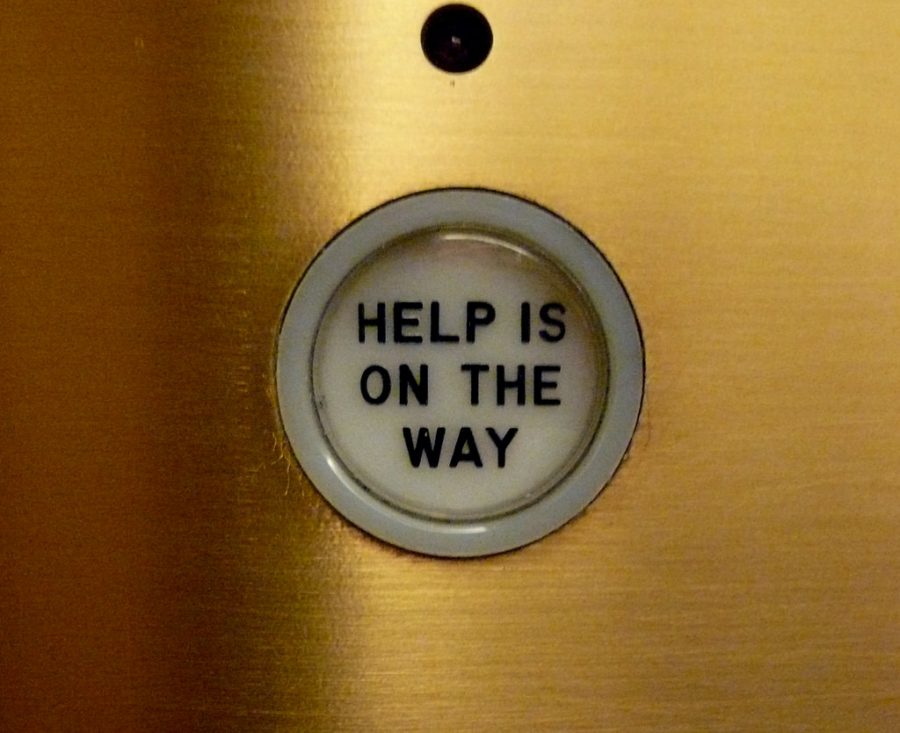Mental Health is Human Health; Resources for You and Your Loved Ones
More stories from Emily Langenberg
“Nobody can get through this life by themselves.”
Arapahoe Community College (ACC) Psychology Professor Allison Hagood proclaims, set against a backdrop just as profound as the subject matter she is discussing.
As she sits in front of her large office window, the mountainous landscape behind her, Hagood offers advice to people dealing with mental illness.
Hagood, a long-time advocate for the Mental Health Resources at ACC, argues, “You wouldn’t be able to set your own broken leg. You wouldn’t be able to pull a bullet out of your own body. So asking for help on mental health struggles should be in that same category.”
A floor below Hagood’s office, the smiling faces of the Student Life Office are happy to point anyone in the direction of Kara Garr. Garr arranges and organizes counseling appointments for current ACC students.
The process starts with signing a waiver, then proceeds to some minor paperwork, and finally Kara will set a time for the student to meet with a licensed therapist sometime within a Monday through Thursday schedule.
Every student is offered eight 45 minute sessions for free, per semester — a service made possible through funds from the “wellness fee” that all students pay with tuition.
Students can even set up recurring weekly appointments after their initial session.
Following the eight free sessions, students can continue treatment on a varying payment scale, which is based on financial qualifications.
If the treatment options at ACC don’t quite fit an individual’s needs, there are various resources available within the Denver Metro area, at little-to-no cost. Hagood recommends the Colorado branch of National Alliance for Mental Illness (NAMI).
NAMI offers services that include counseling for relationship problems, family crises, anxiety, depression, substance abuse, suicidal thoughts, bullying, stress and disability.
NAMI also offers a 12-week course for the families of individuals struggling with mental illness — to help them learn how to support their loved one, as well as help themselves cope.
For more specialized help, Hagood suggests the following resources:
ED Care Denver (eating disorders)
PFLAG Denver (LGBTQ+ and Allies)
Rainbow Alley (LGBTQ+)
For someone looking to help those afflicted by mental illness, Hagood suggested ways to reach out and help them too. “I think it is very important to offer an ear to a loved one or a friend who is struggling — for people to understand that they’re not therapists and that a therapist is not a best friend that you pay. Best friends and family members can be really good support systems for their loved ones but that support should always consist of ‘let’s go find someone for you to talk to.”
Hagood recognizes the struggle it can be to help someone who is in the midst of a crisis. She offers this advice:
“People can feel uncomfortable being around someone in the throes of depression, who are actively suicidal, hallucinating, or having delusions in a psychotic episode; and I completely understand and sympathize with that. But do not abandon them or isolate them; help connect them to what is available.”
Help can often take the form of simply making phone calls to insurance companies to see what they offer, making appointments for and even attending sessions with the individual.
“Ask for help. Do not allow any feelings of shame or self-stigma, and avoid the ‘pull yourself up by the bootstraps’ mentality. There is no shame in reaching out for support or asking to talk. In my personal opinion, it shows a great deal of personal strength to be able to admit that you need help.”
If you or a loved one is at an immediate risk for suicide, do not be alone, and do NOT leave the person alone. Dial 911 or call the National Suicide Prevention Lifeline at 1-800-273-TALK(8255).




Robin Bashford Brown • Nov 8, 2017 at 8:40 am
Your article on mental health was very informative and necessary! I was especially pleased that you spoke about the need for treatment. It is so important that we understand that a mental health issue requires evaluation and treatment just as a broken bone or other physical ailment. There is no shame!! Thank you for outlining resources available to students and how to access them. Your article was loaded with extremely valuable information!